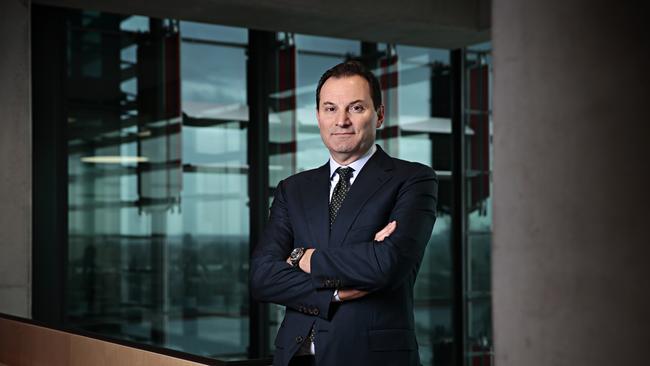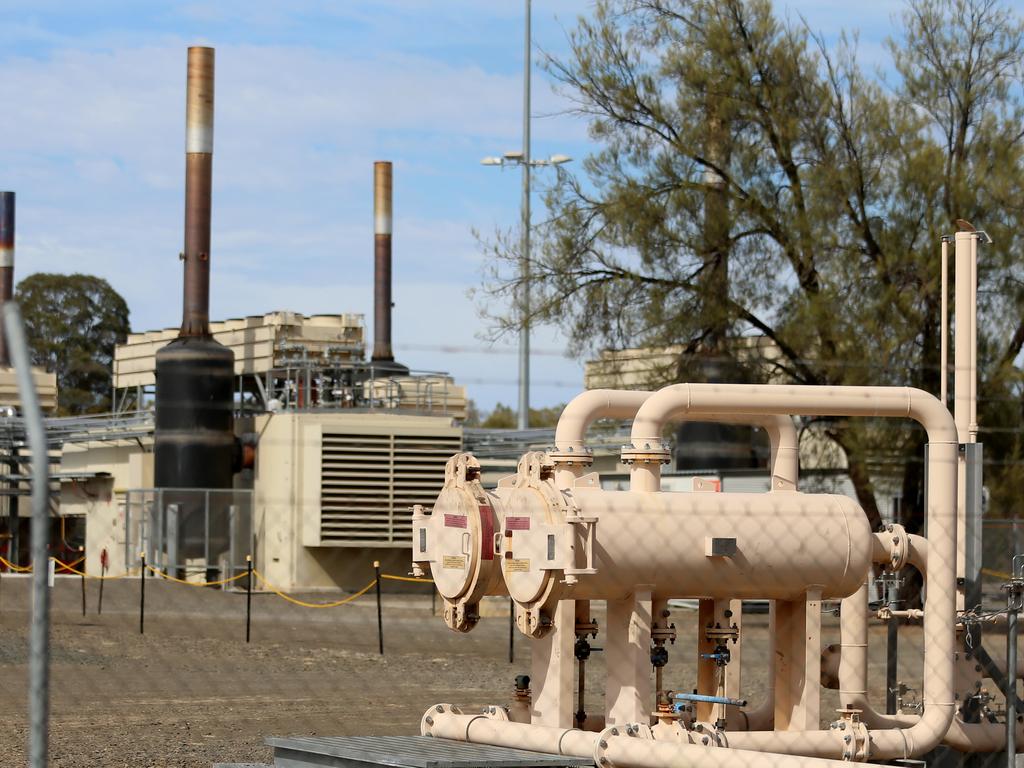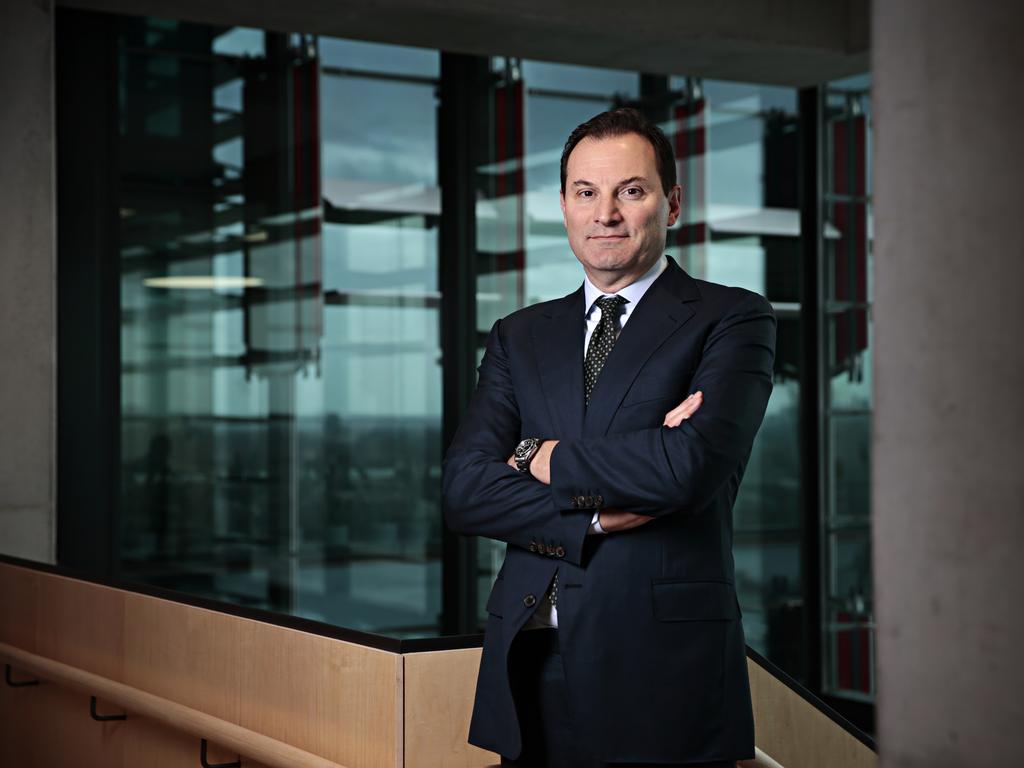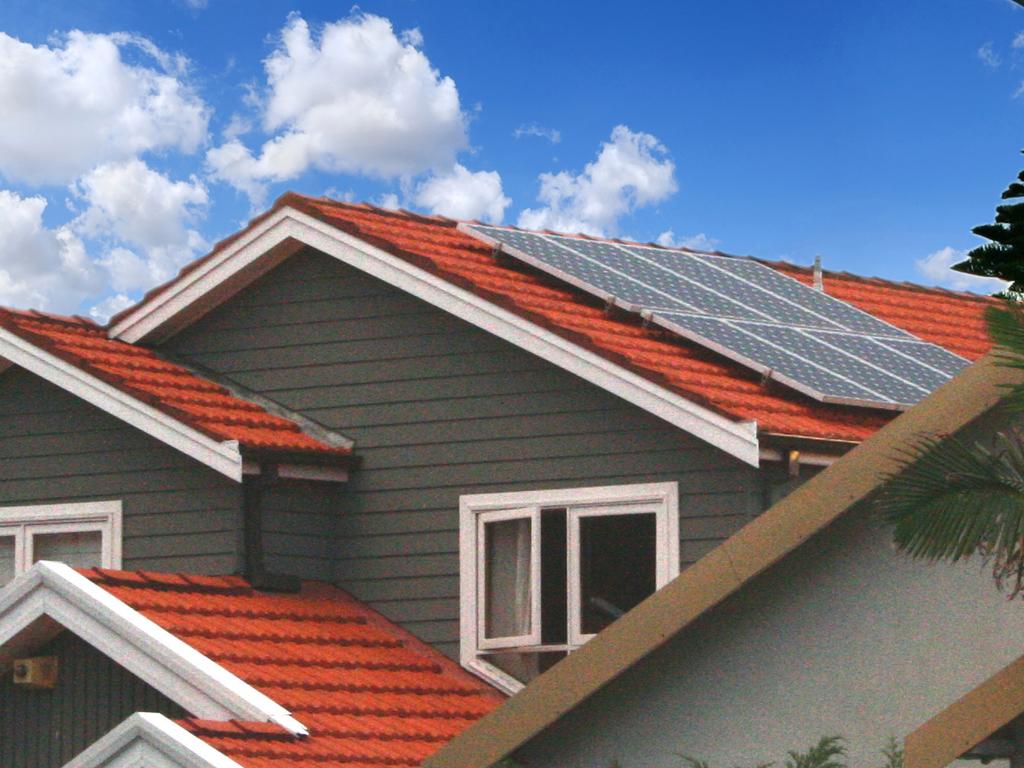Full of energy, Origin chief Frank Calabria plugs in to the future

The hit of COVID-19, transitioning to a low carbon economy and government policy that involves a big stick, a manufacturing-led recovery and no carbon price: all demand constant vigilance.
Last week Oil Search dropped almost a third of its workforce and Shell announced huge writedowns on Australian assets. Calabria says the prospect of hundreds of jobs going at Origin is not on the radar.
“Certainly we have not made any commitments to date, no,” he confirms.
“If you focus on Oil Search and the oil and gas sector, you’ve seen there have been cuts around the globe based on those lower commodity prices and activity.” Origin’s response has been to reduce capital expenditure at its Curtis Island LNG plant.
“We have announced that we would reduce the break-even price of producing at APLNG to $US29 to $US32 a barrel, and at the same time reduce our capital expenditure by between $300m and $400m over the next financial year.
“That largely impacts the contractors in our business, but that’s where our focus is right now.”
Origin Energy’s many businesses range from gas exploration and production, generation (including coal-fired, which is on track to close in 2032) and major investments in renewables. So government decisions, state and federal, on the recovery and pulling of stimulus are of intense interest to Frank Calabria.
“The impacts of JobKeeper and JobSeeker have been really beneficial for customers,” he says. “The full brunt has really been borne by the small and medium enterprises where demand has come down in sectors like services, travel, hospitality.
“When we look forward it is when JobKeeper and JobSeeker are due to come off or be restructured, combined with the mortgage relief that you’ve seen provided, that really is the moment that we are most focused on in terms of the consumer.”
A smooth transition will require special attention to customers vulnerable to the shutdown. Calabria says there have been no disconnections.
“We are pleased to say that support is being provided right across and that continues until at least July 31. What we then would look towards, working with governments, is what is the level of support required going forward? And it gets to be much more specific, as it relates to the consumer. I think, separately, how it impacts particular sectors that are most hit, is yet to play out.”
Just how the federal government’s gas-led manufacturing recovery will take shape is also yet to play out.
It is sitting on advice from Andrew Liveris through the National COVID-19 Coordination Commission, but like many in the gas sector, Calabria baulks at the Liveris’s push for a $4 gas price for manufacturers. He argues that prices have come down and the industry continues to reduce costs: two to three year gas contracts are now priced around $6 a gigajoule in Queensland and $8 in the southern states because of transport costs.
From what has been reported so far, the Origin chief says he supports many of the review’s recommendations.
“There are some positive steps in terms of approvals to get gas developed, moving manufacturing closer to where the resource is, and also the regulatory processes — all really good positives in terms of putting downward pressure on gas. At the same time, we need to be realistic about what is the cost of production of gas. And from our perspective on the east coast, certainly the $4 delivered gas is not a realistic target.”
The federal government is being lobbied hard by manufacturers who see the urgency around recovery as the best chance in decades for cheap gas, both for energy and as an input in production. Last week Orica, Incitec Pivot and Quenos called for a reset that would sever the domestic gas price from export pricing.
Their complaints are levelled right at big gas exporters. Origin reached a milestone this year with its 500th cargo from Curtis Island and also supplies about 30 per cent of the NSW gas market.
“A lot of the developments that occurred particularly in Queensland would only have occurred based on the large volumes contracted offshore,” says Calabria. “What we need to think about is what is going to spur the capital to be developed.”
The importance of a guaranteed export market has long been the Big Gas argument. But last week, manufacturers were arguing that they too would never have invested in their businesses without assuming low-priced, plentiful gas in Australia.
“Well, the historical market for gas had it all supplied to domestic,” Calabria acknowledges.
“It is when it connected to the international markets that it started to therefore represent a price that I believe netted back to that international market and that is really driven by that supply demand. There were times through the transition of those projects that really did tighten the market and gas prices got too high. The market is now moving down and clearly for contracts, it will move down over time. In the case of some of those larger commercial users of gas it will come down to the length of term of contractors to the price and all those types of things.”
Another moving part for Origin is the demand profile for energy as Australia recovers: demand from SMEs has been 10-15 per cent down; will it come back pre-COVID levels? And what of the retail market and the influx of solar panels on roofs? The market also expects gas supply to fall significantly by the middle of the decade, as production from Gippsland assets decline. Projects from Santos’s Narrabri to import terminals and interstate pipelines are all vying to fill the gap, but Frank Calabria is careful about whether this new supply will lower prices.
“Increasing supply, by definition it does, but it would be limited to the extent of the cost of that new production.”
As Australia shifts to recovery mode, the constant talk about a gas-led manufacturing recovery which returns to the east coast gas debate misses the broader picture.
“They have an opportunity to be much more expansive in the recovery reset,” says Calabria. “The commission is actually focused on a bunch of other things like advanced manufacturing. There’s the energy reform in electricity. Do we bring the transition on? If you get the right policy setting, we are at an opportunity right while demand is coming back out — and we don’t know where it fully comes back, for us to actually accelerate into that, so I think there is a much broader opportunity for the economy.”
Origin’s latest $500m investment in British business Octopus Energy is a part of Calabria’s strategy to lead in the retail market as energy assets and data become more distributed.
“Octopus has the No 1 customer satisfaction and the lowest cost to serve by a margin. They have built the market-leading technology, Kraken, and it really is their ability to reimagine the way that technology, operating model and culture come together.”
Calabria talks excitedly about the secret ingredient Octopus has created, which he says is not easy to replicate. “They have designed the technology that makes the frontline agent’s job incredibly easy by virtue of the automation. They centre everything around the customer, whereas historically you all know that most of the energy sector is centred around the metre,” he says.
Like many businesses, Origin’s digital transformation has been fast-tracked by the circuit breaker of COVID-19: all mission-critical apps are now in the cloud, all natural and renewable power stations now operate remotely and by 2021 all customer data centres will also in the cloud.
Perhaps the most difficult task for Frank Calabria is how to invest next in a transitioning economy where the government is both calling for investment in new “firming generation” to back up the surge in renewables, but is also a player in the market and has form on market intervention.
Gas is the obvious candidate. “No doubt Snowy Hydro will come in over time but gas has a key role: its ability to rapidly start and operate flexibly alongside renewables is why it is so critical to the puzzle.
The private sector, if it makes a commitment to that, needs to invest in multi-decade assets. It is expensive, there is a lot of capital invested upfront and so really it is the confidence that you will know the settings in which you make that investment. And as we have seen over the last five to 10 years, those settings have changed. I think the market is now with government, the industry is working towards how to make those investments with confidence. That’s been the key barrier to date.”




Sit down with Frank Calabria for half an hour and you get a sense of the state of flux in the energy sector and the job at hand for the Origin Energy chief.